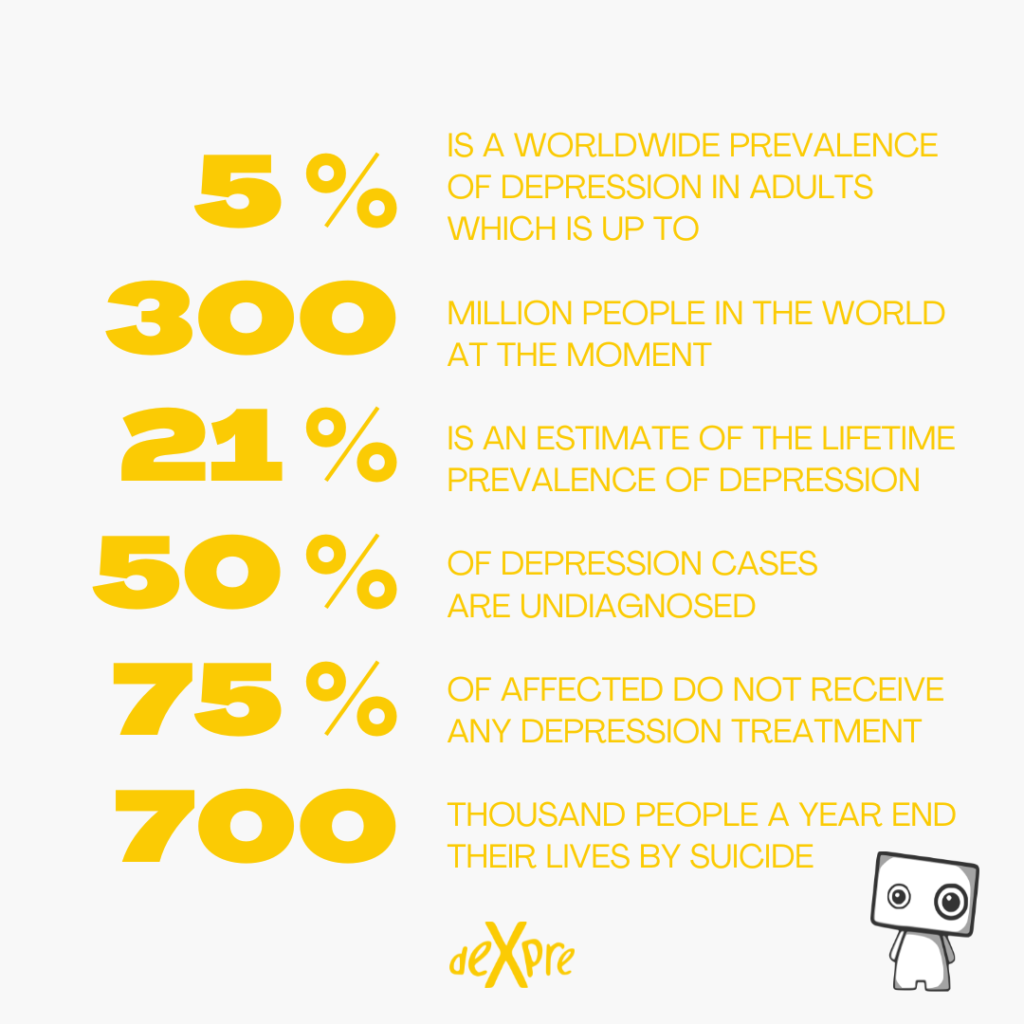Depression in numbers
Depression is a word that rooted in our general language some time ago and has become a topic forever. It ranks among the world’s most common diseases, is the fourth most common disease in the world and the most common psychiatric illness. Let’s be real, how many times have you personally thought that this is a little on the edge and you might be fighting depression?
It is the most common psychiatric illness, affecting an estimated 5 percent of the population, or about 300 million people worldwide.
According to various data, lifetime prevalence is estimated at 10 to 21 percent, so we can assume that up to one in five people have experienced a depressive episode in their lives. In general, women suffer from depression more (1.5:1). The differences also appear in age groups.
According to some estimates, however, up to half of the cases of depression are unrecorded and undiagnosed, and the persons have never sought professional help. The situation is worse in developing countries, where up to 75 percent of people never receive adequate or any treatment.
The World Health Organization calls depression the strongest causative agent of disability. This is a serious problem affecting both personal and working life, especially with longer duration and stronger intensity. Depression is also one of the most common causes of suicide, its impact killing up to 700,000 people a year.

Only 20 percent of patients recover of depressive illness without further symptoms, while 20 percent of patients commit suicide or remain permanently disabled. The remaining 60 percent make a partial recovery but suffer more episodes of depression. In half of the patients, the depression disappears spontaneously in six months.
You're not alone!
Although these figures seem frightening, they actually bring positive news. If you or someone around you is struggling with depression at this point, you’re not the only one. The worldwide prevalence of this disease shows that many other people in the world have found themselves in a similar situation. Therefore, depression is described in the manuals of specialistsand there is an adequate treatment for it.
Don’t be the one who doesn’t seek for help out of fear or prejudice. Psychiatrists, psychologists, and psychotherapists are trained professionals who will help you understand what is happening in you. None of them want you to reach the very last step and become just another number in the statistics.
If you’re one of those who think they have to make it on their own, you may be right. You may even succeed, because up to half of the patients’ depression subsides within half a year. So is it worth a try professionally?
With a specialist, you will work on the problem systematically, the symptoms will be relieved faster, and at the same time you will help prevent the return of the disease.
Everyone is an individual and the treatment of depression is approached as such. But if you feel that it is already too much and a helping hand would be useful, try looking for an expert in your area. You can also book a session here on the site.

